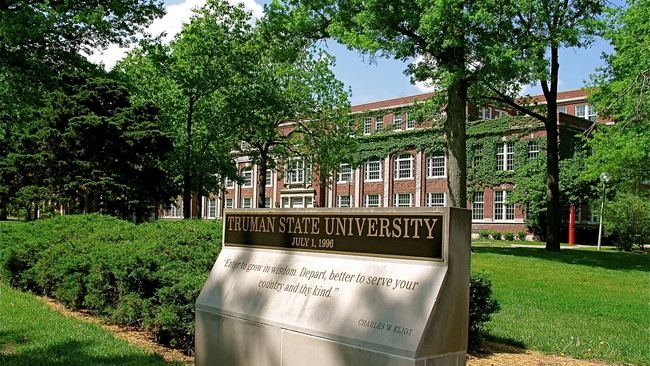
Truman State University has been looking into changing the liberal studies program curriculum to better improve its distinctiveness.
Former Truman president Troy Paino challenged administration to improve the current liberal arts curriculum in January of 2015.
Faculty and administration have gotten together to amend Truman’s current liberal arts curriculum.
Kathy Otero, one of two committee members to speak at the Strategic Planning and Assessment workshop said the current liberal arts program is 20 years old and needs to be updated.
The redesign of the LSP began with six action teams that created a list of recommendations.
According to the Bill to Revise Truman’s LSP, the action committee wants to change the word modes in modes of inquiry to dialogues to emphasize discussion in liberal arts education.
Truman’s faculty senate proposed senate bill 5516 in spring of 2017.
The bill proposed modes of inquiry being divided into four worlds — natural, social, creative and symbolic systems.
Classes such as Writing as Critical Thinking and Public Speaking will stay as required classes.
The committee’s main problem was making sure their bill complied with Missouri Senate Bill 997, which lists requirements for all Missouri educational institutes.
Committee member, Steve Hudman presented the LSP changes at the Strategic Planning and Assessment Workshop and said the committee decided on the current proposal.
The updated proposal now has dialogues divided into special perspectives including,
- Social perspectives
- Communication skills perspectives
- STEM perspectives
- Humanities perspectives
- Aesthetic perspectives
The difference between the first proposal and the updated one are the essential skills are now included in perspectives instead of being separate classes.
President Sue Thomas said the new curriculum will not be much different from the old one, but it allows more interconnectivity between disciplines.
“[The committee] is breaking out the courses differently than how they have been broken out before,” Thomas said. “What they’re really interested in doing is having them fall together in good conceptual ways, and that gets to the heart of a question on our campus as to what constitutes a liberal arts course.”
Two new seminars have also been proposed as requirements for all incoming students.
Executive vice president for academic affairs, Janet Gooch, says the seminars were added to prepare students for their Junior Interdisciplinary seminars.
Gooch said one of the seminars would be required for all new students their first semester, then the second seminar would be met for the spring semester.
The seminars would incorporate classes such as public speaking and statistics.
The bill will be discussed again at the senate meeting on Aug. 24.
